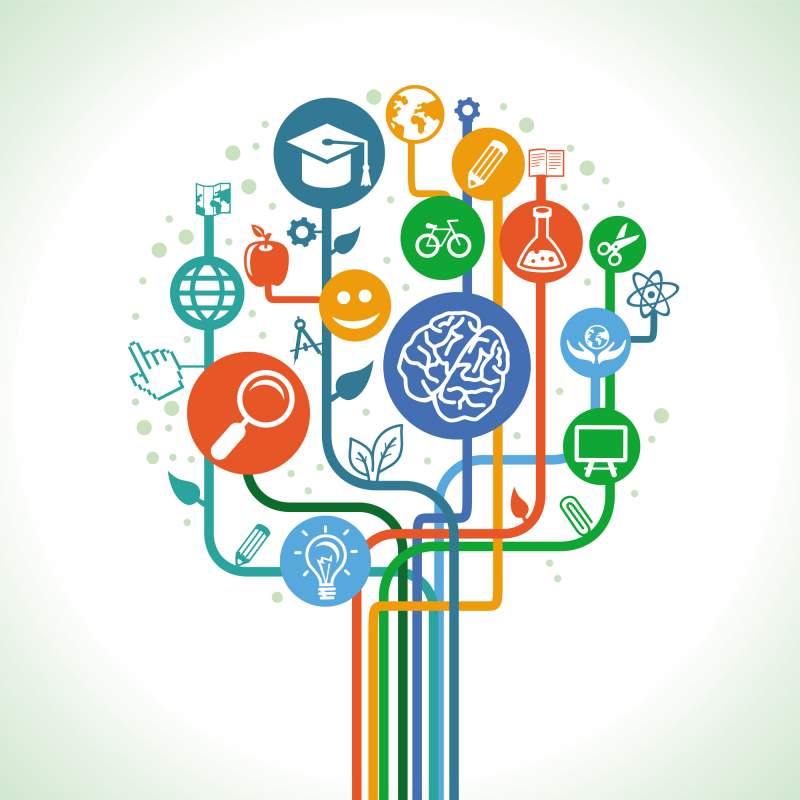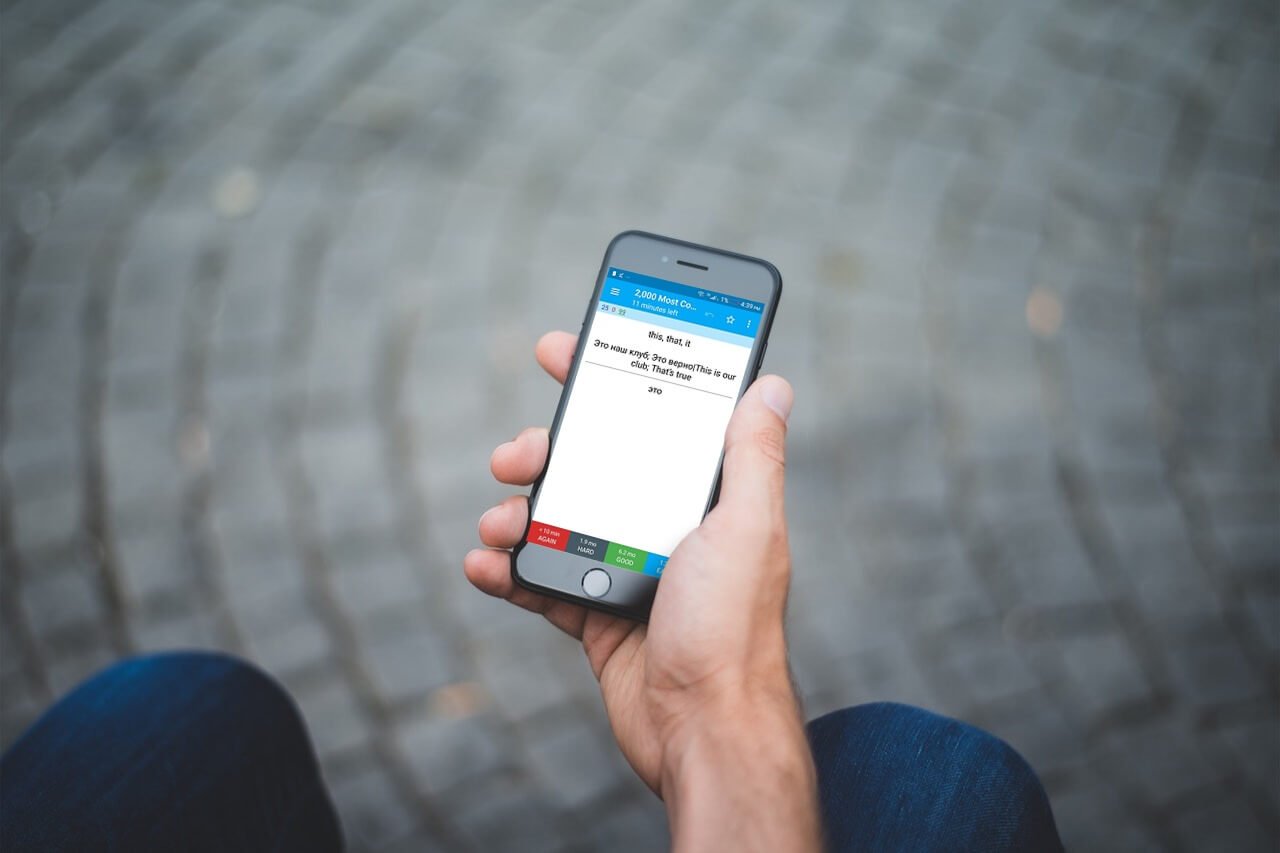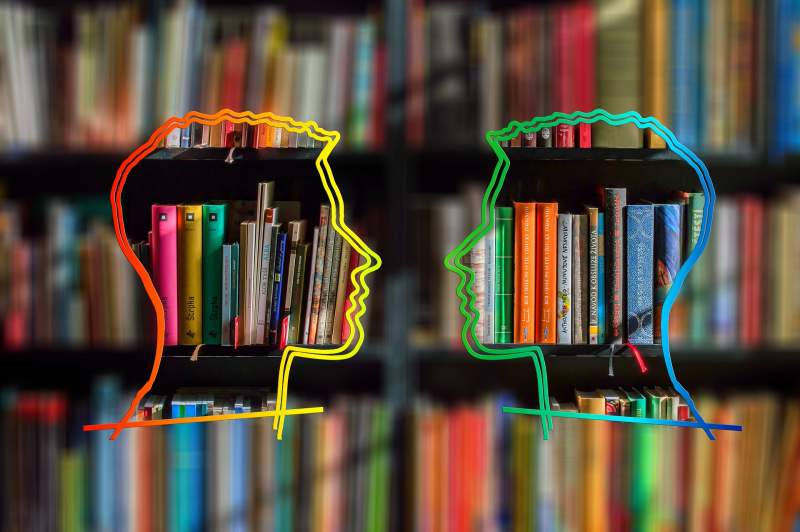 Today I'm delighted to feature a guest post from my friend Nasos Papadopoulos about metalearning techiques you can use to become a more effective language learner.
Today I'm delighted to feature a guest post from my friend Nasos Papadopoulos about metalearning techiques you can use to become a more effective language learner.
Over the last few years Nasos has taught hundreds of students as a university lecturer, picked up hard skills in record time and interviewed some of the world's top experts in a variety of different fields.
In this article, he shares the results of those experiences. You'll learn:
- A key difference between how children and adults learn languages
- What MetaLearning is and why it's important
- 5 incredible meta learning strategies that you can use to become a more effective learner
Over to Nasos…
By the way, if you want to be a successful language learner, while metalearning is important, using the right method is also key.
My courses teach you through StoryLearning®, a fun and effective method that gets you fluent thanks to stories, not rules. Find out more and claim your free 7-day trial of the course of your choice.
Be Careful What You Wish For
Do you wish you could pick up a language as effortlessly as a child?
Well if you do, you should be careful what you wish for…
One of the most common myths about language learning is that adults are worse learners than children.
But in fact, there’s plenty of evidence that we adults are even better learners than those little critters!
The main advantage children have over us is simple – they aren’t afraid of making mistakes and don’t suffer from the same self-defeating thoughts many adults do. (The fear villain only seems to appear in adulthood!)
So they blunder along, without a care in the world, being corrected by everyone around them until, as if by magic, they’re speaking fluently.
This fear of making mistakes and looking bad is something we all have to manage as adult language learners – and it may never fully go away because we are continually aware of our thoughts and feelings
The Magic Of MetaLearning
But the very thing that can put us at a disadvantage to kids in language learning is the very same thing that can give us our greatest advantage and help us accelerate our learning.
It’s because we’re aware of our thoughts and mental processes that we have the ability to understand how we learn and to improve as we go along.
This ability to consciously direct our own learning, known as meta-learning, is the greatest weapon we have at our disposal as language learners.
And after interviewing some of the best language learners in the world, for my podcast, MetaLearn, (including our very own Olly Richards!), it’s clear that they all have this trait in common.
All great language learners are MetaLearners.
They continuously reflect on what they’re doing and adapt their methods until they find something that works.
And they all use some variant of the MetaLearning strategies I’ll be showing you in this post.
This is also something I’ve applied in my own learning to great effect, picking up new languages in record time and making progress I would have thought was impossible back when I was in school.
In this post, I’ll be outlining 5 MetaLearning strategies backed by scientific research that will help you take your learning to the next level, along with practical steps you can apply to your language learning straight away.
1) Spaced Repetition
Spaced repetition is the process of studying information more than once and leaving longer and longer gaps between sessions.
Many people wrongly believe that repeated exposure to material burns it into long-term memory and spend hours on end repeating the same vocabulary over and over again.
But while this type of learning may be effective the day before an exam, it won’t last long and you’ll forget the information in a few days.
Hardly ideal when you’re learning a language you want to use!
This type of rote learning doesn’t work because with very short study intervals, your brain gets less interested in the information that’s being repeated.
So, for example, if you keep repeating that la manzana in Spanish means apple, your brain gets bored and eventually starts to ignore it.
However, by reviewing information (like vocabulary) at longer and longer intervals, you can overcome this.
You start to forget the information between your learning sessions but this means you have to apply more effort to remember material in each new session, which leads to more effective learning.
In some ways, your brain is like a muscle that needs to be trained.
The harder it has to strain to remember something, the better it you’ll remember it next time you’re tested on it.
It’s just like how your muscles will grow if you lift increasingly heavier weights at the gym week-on-week.
How To Apply Spaced Repetition In Your Learning
The best way to use spaced repetition in your learning is to gather the material you want to learn and break it into chunks – whether that’s vocabulary words or phrases.
Then take your chunks of information and create flashcards with them to test yourself with.
You can create physical flashcards using index cards or use flashcard software like Anki or Memrise on your computer or phone that will test you at the correct intervals to optimise the learning process.
Pro Tip: If you don’t like flashcards, then a great way of incorporating some spaced repetition into your learning is to start your language study sessions or lessons with a teacher by testing yourself on material from a previous session.
2) Elaboration
Elaboration is the process of creating mental hooks by linking new information to memorable ideas and experiences.
Our intuition tells us to get through material as quickly as possible by rereading and highlighting but this isn’t actually the best way to make progress.
Because of the way our brains are structured, making information more striking and linking it to our own knowledge and experience greatly improves our ability to remember that information.
The best way to do this in language learning is to relate new sounds, words, phrases and grammar structures to what we already know and have experienced. The richer that information is and more things it’s connected to, the better it will stick.
That’s why immersion can be so powerful.
On top of the fact that you’re forced to speak the language more often, everything you say is linked to a deep sensory experience, whether you’re sitting in a bar in Barcelona or a co-working space in Hong Kong.
You Don't Need To Live Abroad To Get Immersion
But the good news is that you can recreate the elaborative benefits of immersion at home.
For example, when I was learning Portuguese in 2014, I’d often pause during my daily conversations in English and try to translate what was being said, linking it to my own direct experience in the moment.
If I couldn’t translate accurately, I’d note down what I wanted to say and look it up later.
This was very effective in improving my vocabulary and fluency in conversation.
Another great way to get the benefits of elaboration is to do activities in your target language.
When I was learning Portuguese I started taking some Samba classes in London as a way of accessing the culture and meeting other Brazilians who I could speak with more regularly.
This is essentially a form of temporary immersion that gives you some of the benefits of authentic experiences without being in a country where your target language is spoken.
Pro Tip: Try to focus on learning phrases rather than words once you’ve passed the introductory stage of the language.
This makes the most of elaboration by linking multiple words to each other and to real life situations.
3) Mixed Practice
Mixed practice involves practicing a series of skills at once rather than isolating them as in blocked practice.
Blocked practice is when a learner performs a single skill over and over, focusing heavily on repetition. Variance in this type of training is minimized or nonexistent.
If you’re a beginner in a language, the most important thing is to develop a steady, consistent routine that allows you get practice regularly (don't let the inconsistency villain spoil that for you).
But as you start to move past the beginner stage, you should make an effort to mix up your schedule so that all your skills are being tested regularly.
Applying Mixed Practice On A Micro Level
For example, this can be applied on a micro level to specific verb conjugations.
So if you’re learning Spanish, for example, and working through verb conjugations you should practice a combination of –ar, -ir and –er verbs in the same session rather than just blitzing through all the –ar verbs in one session and all the –ir verbs in another.
If you’re studying from a textbook, add different types of questions from other chapters into your study sessions since most textbooks have chapters focusing on one topic at a time.
Why not retest yourself on that imperfect tense again after studying the perfect?
Or go over the career vocabulary after you’ve covered the phrases on daily routines?
Applying Mixed Practice On A Macro Level
On a macro level, mixed practice can be applied to the fundamental skills of any language – reading, writing, listening and speaking.
So instead of just spending your daily sessions working on only one of these four disciplines, start working in some mixed practice by combining them.
You could do this by reading an article and writing a few sentences about what you remembered from it.
Or alternatively, by listening to an audio lesson and repeating some of the words and phrases from it out loud.
The list goes on and on – but the key is not to fall into the trap of simply repeating the same type of task again and again.
While this gives you the feeling that you’re improving quickly, it doesn’t translate into more effective learning.
The problem is that mixed practice will feel ineffective compared to blocked practice and you not might feel or see the same immediate results at the end of a study session.
But if your goal is to learn more effectively, then you’ll need to deal with discomfort – so trust the method and you’ll see great results in the long run.
Pro Tip: Mixed practice should be used with a healthy dose of common sense – so if you’ve got 20 minutes for a study session, it clearly doesn’t make sense to try and cram in 5 minutes of speaking, 5 minutes of reading, 5 minutes of listening and 5 minutes of writing just for the sake of it.
Just be aware of the fact that testing a variety of skills, grammar structures and vocabulary areas is much closer to what you’re going to be doing in real life, so mixing things up will better prepare you for your end goal!
4) Reflection
Reflection is the process of thinking about your learning in terms of what went well and what you could do better.
This enables you to make changes next time around that can help you improve on what you’re doing.
So at the end of a your next lesson or study session – ask yourself what went well and what you could do better next session.
Even if it’s just for 5 minutes, make sure to take the time to reflect.
For instance, in a relection session after a Spanish lesson I had with my teacher recently, I realised that while I was conversationally fluent I was still making the same grammar mistakes I had been for a few weeks.
So next time round, I made a point of asking to go over those specific mistakes first and tackling the problem head on.
I may not have done this if I hadn’t dedicated those five precious minutes at the end of the previous lesson to think about what I could improve upon.
While your intuition might tell you to skip reflection because it’s time consuming and unnecessary, it’s extremely valuable.
It’s easy to believe that all of your time should be spent on learning but the importance of actually reflecting on your processes is paramount and will make a huge difference to your progress.
Reflect On What You Learn, Not Just How You Learn It
And it’s not just the processes that you can reflect upon – you can and should also reflect on what you learned during the session too.
This will give you the benefits of an additional review and will also give you the time to connect what you’ve learned to what you already know, accessing the benefits of spaced repetition and elaboration!
I’ve always found it very useful to keep a learning journal related to the language I’m learning and write down new insights as I make progress.
I personally prefer to use pen and paper but you could use a tool like Evernote if you prefer to store your information digitally.
Pro Tip: If you don’t schedule time for reflection it won’t get done.
If you’re doing a 45 minute study session, build time into that for reviewing the content and process of your sessions – what you learned and how you learned it.
A great way of doing it is to reflect on your progress through conversations with a teacher or friend.
5) Calibration
Calibration is the process of accurately assessing your own performance against a clear standard.
Cognitive biases mean we struggle to assess our own level and suffer from “illusions of knowing” that convince us we’re better than we actually are.
This means we may not put in the work needed to improve and take our language skills to the next level!
Calibration allows us to gain an accurate assessment of our own competence and identify the areas we need to work on.
The increased self-awareness that comes from this means we’ll change things up when something’s not working.
How To Apply Calibration In Your Own Learning
One of the best ways to use calibration is to get a teacher, even if you only do one session a week with them.
Because it’s difficult to assess your own performance level, having a teacher who can give you objective feedback on how you’re doing is very useful and can help you find a way through the sticking points and plateaus.
If you are studying alone, then test yourself at the end of your study sessions.
Test yourself regularly with quizzes and exercises and by speaking the language as much as possible at every opportunity you get.
To get these opportunities to assess your progress, it can be helpful to join a community of learners in your chosen language and observe the top performers in the group.
What are they doing that you aren’t?
And is there something relevant you could do to replicate what they do, given your current level?
Also assess your competence through interactions with your peers.
For example, at a English/Spanish language exchange you could see how well you’re able to hold a conversation with the same native speaker as the weeks progress and ask them to give you an objective rating each week.
It may obviously take a while to build up the trust with them to do this, but it’s certainly an excellent way of getting regular feedback if you can manage it
Try These MetaLearning Ideas Out Yourself
There is no single best way to learn any language for everyone in every context.
Cognitive science has given us huge insights into the way we learn, and these strategies have also been extremely valuable for me in my language learning.
While all of the language-learning experts I’ve interviewed have very different study methods, they all share the trait of consciously directing their own learning, or MetaLearning, as I like to call it.
And many of them use the strategies I’ve outlined in this article – whether they’re conscious of it or not.
But despite all of this, the truth is that no single method or technique is guaranteed to work for you all the time in all contexts – you’ll only find out for yourself through your own experimentation what works best for you.
So instead of trying to implement all of these ideas at once, try the one that stands out to you the most.
Take it, use it in your next few learning sessions and see how it works for you!
And when you start to lose yourself in the process of learning, the speed at which you achieve your language goals will become irrelevant…
… because it’s the journey that matters, not the destination.
Happy MetaLearning!
Nasos Papadopoulos is the founder of MetaLearn.net. Whether you're building a business, learning a language or picking up a new sport, at MetaLearn you'll discover the principles and techniques needed to succeed.

Olly Richards
Creator of the StoryLearning® Method
Olly Richards is a renowned polyglot and language learning expert with over 15 years of experience teaching millions through his innovative StoryLearning® method. He is the creator of StoryLearning, one of the world's largest language learning blogs with 500,000+ monthly readers.
Olly has authored 30+ language learning books and courses, including the bestselling "Short Stories" series published by Teach Yourself.
When not developing new teaching methods, Richards practices what he preaches—he speaks 8 languages fluently and continues learning new ones through his own methodology.














































